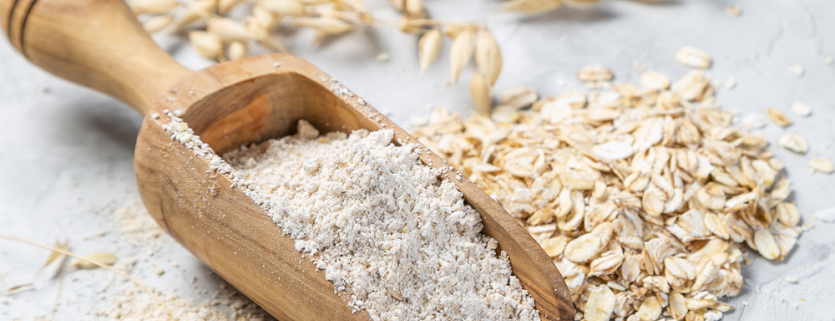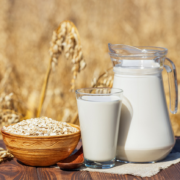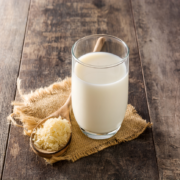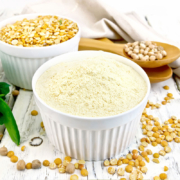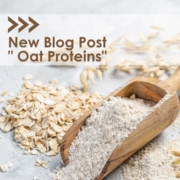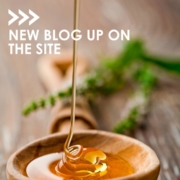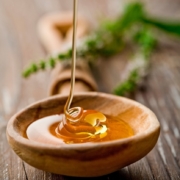Oat protein as an alternative to animal sources of protein
Proteins are a relevant part of the daily diet, after all, they are among the three most important main nutrients for the human body. As a source of protein, foods of animal origin probably come to mind first. However, there are many plant-based alternatives to meat and cottage cheese that have a high protein content.
In this blog post, we will focus on oat proteins. They have many advantages – and they are not only interesting for vegans.
Why are proteins important?
Basically, proteins are composed of differently linked amino acids (also protein building blocks). Among other things, these contribute to the building and maintenance of muscles, cartilage and connective tissue, but also play a role in the defense against pathogens and the transport of oxygen and fat. In short, they are essential for the survival of the human body.
They are divided into non-essential and essential protein building blocks. The latter are those that cannot be produced independently by the human body. They must be ingested through food – for example, animal products such as fish, meat and dairy products. But they can also be obtained from plant-based foods such as broccoli, various seeds and nuts, or in the form of oat protein.
Which brings us to the differences between the two types of protein sources.
Plant vs. animal proteins
The reason many people – especially athletes – prefer animal proteins is because of the higher amount of essential amino acids they contain. However, several studies in the past have shown that intake from animal sources increases the risk of developing diabetes high blood pressure. Proteins of plant origin, on the other hand, actually lower this and are not harmful. In addition, they provide more fiber and are easier to digest.
The biological value also plays a role. It determines how quickly the proteins can be metabolized (i.e. converted into the body’s own protein). 100 corresponds to one egg and stands for very good utilization. Animal proteins usually perform somewhat better here.
But: Different protein sources can be combined with each other to improve the biological value. This also works with different plant foods. In addition, you should anyway pay attention to a balanced and varied diet in which the different amino acids complement each other.
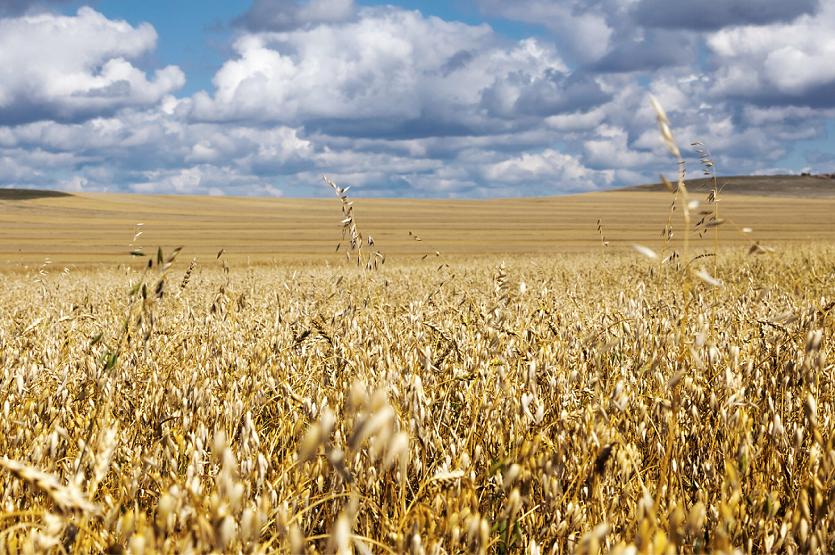
Field full of Oat
Properties of oat protein
As the name suggests, this is protein that is extracted from oats. This is considered a very high-quality and healthy grain in any form. It contains a large amount of essential amino acids. These include in particular:
- Leuxin
- Isoleucine
- Valine
These are so-called BCAAs, an amino acid complex that contributes to muscle growth and repair, among other things. It is also involved in wound healing and metabolism.
Oat protein also contains SAA (apolipoproteins). These are believed to have a positive effect on inflammatory processes.
In addition, protein from oats contains tryptophan. This amino acid influences mood and performance and has a calming effect – no wonder, since it is a precursor of the neurotransmitter serotonin.
The biological value is 60.
Oat protein – advantages in use
The vegetable protein has other advantages besides the above-mentioned properties. Oatmeal is experiencing a boom right now, and you can find many recipes for “overnight oats” and breakfast bowls on the Internet that include it. Accordingly, you can get very creative with your intake. However, you can also get it in the form of oat protein powder, which is even more straightforward to use.
On the one hand, oat protein is of course a vegan alternative to animal protein.
But also in case of different intolerances and allergies, you will benefit from its use. Oat protein is lactose-free and almost gluten-free. In addition, it is also well tolerated by allergy sufferers. When looking for an alternative to animal protein powders, you always stumble across common allergens such as soy and legumes. You can bypass the use of these with oats.
Plus, you’re resorting to a healthy and all-natural way to ingest essential proteins.
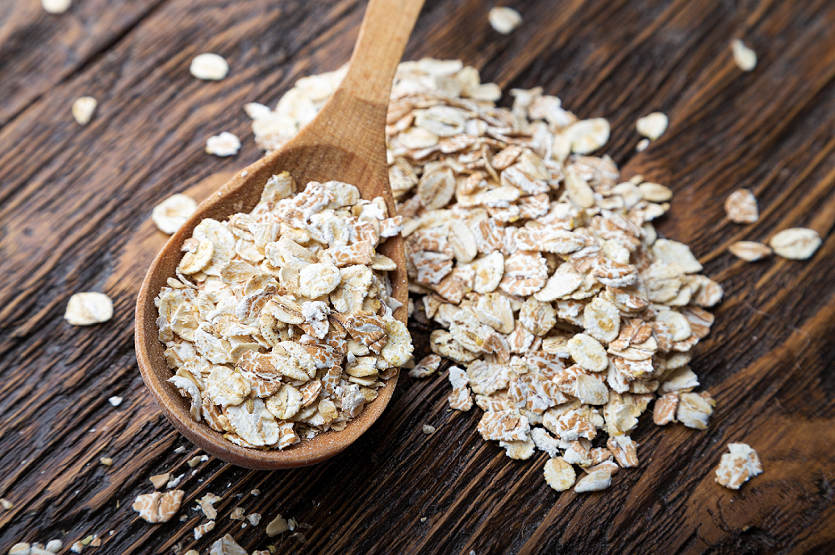
Oatmeal on a wooden table
Oat protein powder: areas of application
In powder form, oat protein can be used in very different ways. On the one hand, you can use it to make a classic protein shake – for example, with water or a plant drink of your choice.
The powder is also increasingly used in the production of meat substitutes. Here it forms an alternative to the frequently used soy or pea proteins.
But even beyond that, there are almost no creative limits. Use the oat protein powder for example:
- in various baked goods and cereals
- for the production of protein bars
- as a supplement in ice cream and other desserts
- in soups and sauces
- as an alternative to milk
- in shakes and smoothies
- as a texturant in meat substitutes
Before buying: consider quality guarantees
If you decide to use oat protein, you should obtain some information before buying. First and foremost, the oats should come from a non-GMO farm. Also, if you have a gluten intolerance, pay explicit attention to this claim. There may usually be a small amount present. However, you can also get oat protein that is completely gluten-free.
Last but not least, the taste is of course also crucial. Those who do not regularly consume oat products such as oat drink or similar, often find it a bit hard to get used to. Basically, however, high-quality oat protein has an excellent taste.
More ways to switch to plant-based proteins
Oat protein is not your cup of tea and you are looking for another plant-based option? Rice, pea and hemp proteins also bring many benefits.
If you are a food manufacturer and looking for a vegan alternative to animal protein, naVitalo is the place to be. We are specialists in plant-based food ingredients made from tapioca, rice, oats and other cereals. Our focus is on the use of environmentally friendly, sustainable and high-quality resources in BIO quality.
Sounds interesting? Then contact us and we will look together for the products that fit your company. Beyond protein powders, we also offer different vegetable sweetener alternatives and drink powders.

